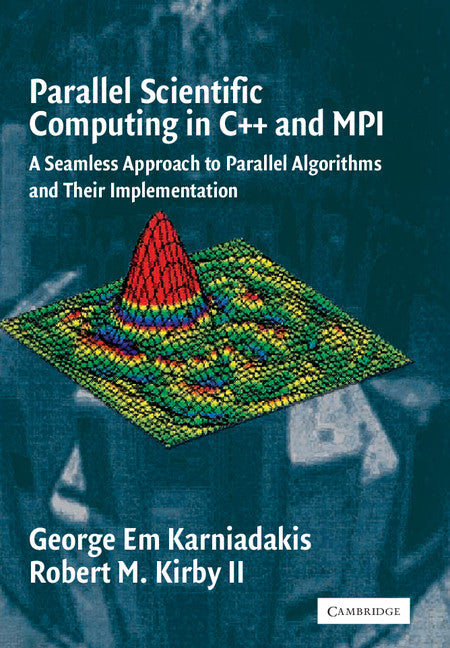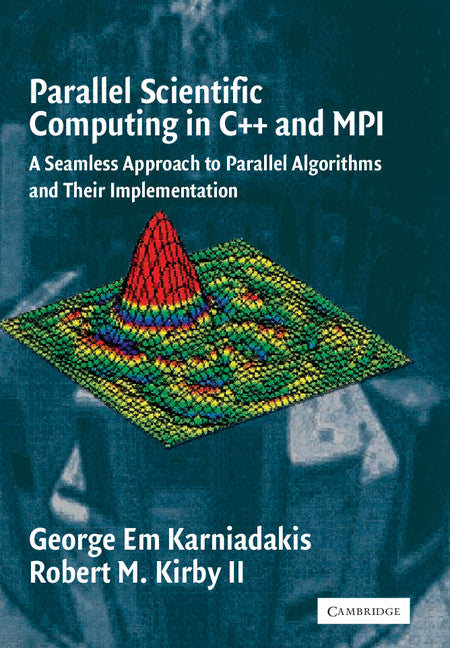Freshly Printed - allow 6 days lead
Couldn't load pickup availability
Parallel Scientific Computing in C++ and MPI
A Seamless Approach to Parallel Algorithms and their Implementation
This book provides a seamless approach to numerical algorithms, modern programming techniques and parallel computing.
George Em Karniadakis (Author), Robert M. Kirby II (Author)
9780521520805, Cambridge University Press
Paperback, published 16 June 2003
630 pages
23.5 x 19.1 x 3.2 cm, 1.07 kg
'There is plenty of material for a two-semester sequence, or selected chapters could be used for a one-semester course on numerical linear algebra. The presentation is clear, practical, and lively … this text would be a very useful reference for statistics students and professionals) seeking to take their statistical computing skills into the parallel realm.' Journal of the American Statistical Association
Numerical algorithms, modern programming techniques, and parallel computing are often taught serially across different courses and different textbooks. The need to integrate concepts and tools usually comes only in employment or in research - after the courses are concluded - forcing the student to synthesise what is perceived to be three independent subfields into one. This book provides a seamless approach to stimulate the student simultaneously through the eyes of multiple disciplines, leading to enhanced understanding of scientific computing as a whole. The book includes both basic as well as advanced topics and places equal emphasis on the discretization of partial differential equations and on solvers. Some of the advanced topics include wavelets, high-order methods, non-symmetric systems, and parallelization of sparse systems. The material covered is suited to students from engineering, computer science, physics and mathematics.
1. Scientific computing and simulation science
2. Basic concepts
3. Approximations
4. Roots and integrals
5. Explicit discretizations
6. Implicit discretizations
7. Relaxation: discretization and solvers
8. Propagation: numerical diffusion and dispersion
9. Fast linear solvers
10. Fast eigensolvers
Appendix A: C++ basics
Appendix B: MPI basics
Bibliography.
Subject Areas: Computer science [UY], Numerical analysis [PBKS]


